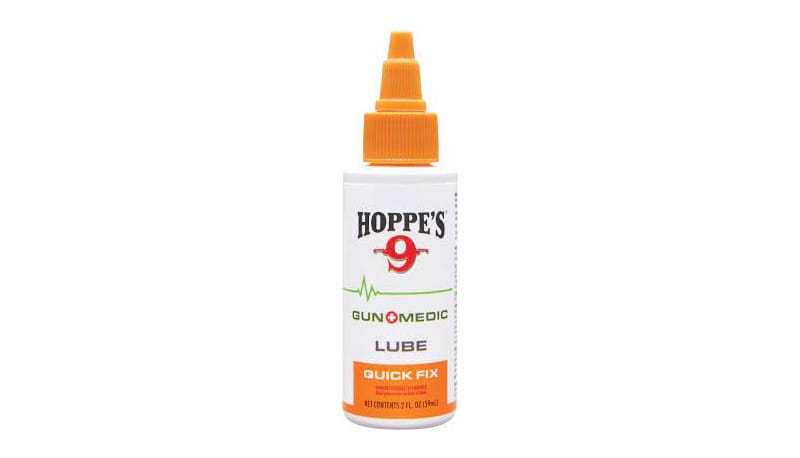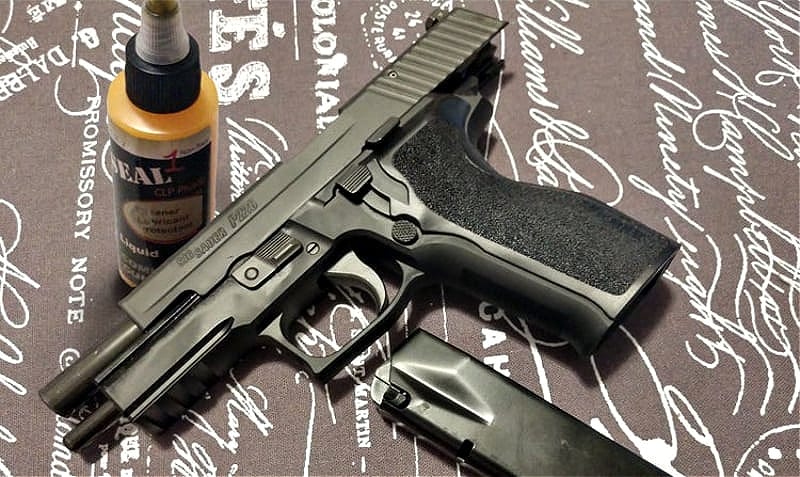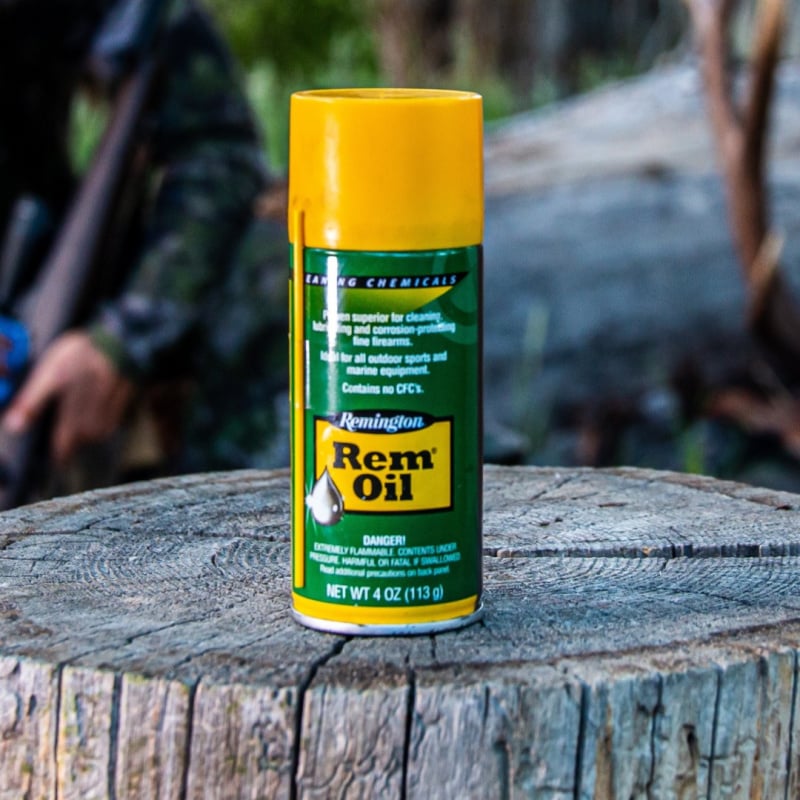If you own guns, you’ve (hopefully) cleaned them at least a few times. You’re probably also aware of the enormous line of cleaning products on the market. There are sprays, oils, creams, pre-soaked wipes and swabs… you name it and it likely exists in the gun cleaning aisle. But when it comes to narrowing products down, two types in particular stand out: CLP and lube. It seems like gun owners either love or hate them, and plenty of misinformation is out there, too. We’re going to break it down for you and explain the pros and cons to each, and why it’s not just the category that matters, it’s the manufacturer behind the brand.
What is gun lube?
You might be thinking you’re familiar with gun lube, and you likely do understand the general concept. “Gun lube” is a label used pretty interchangeably across oils, CLPs, and greases. However, there’s a difference between lube and CLP, and there’s also a difference between lube and the other greases and oils out there. Let’s consider what gun lube is supposed to do, and what it really is.
At its most basic function, gun lube is a slick product designed to help metal parts move against/alongside one another without excessive friction. There isn’t only one type of lube that works or should be used, either. One of the reasons “gun lube” is a term that gets confusing or frustrating is because it tends to be used as a blanket phrase to describe any gun-related product made to add slip to metal parts. That use of the term isn’t exactly wrong, but it also isn’t precisely correct. For the purpose of this article, let’s go ahead and narrow it down to oils.
What is gun oil used for?
Gun oil is used for lubricating the metal parts of a firearm, but it isn’t as thick or viscous as grease or CLP. While a CLP tends to be more of a multi-purpose gun cleaning tool, gun oil is usually only for lubrication (or mostly, anyway).

A great example of gun lube is found in the image above of Hoppe’s 9 Gun Medic Lube Quick Fix, which is similar to Breakthrough Clean Technologies Battle Born Lubricant and Preservative. This product is made specifically to lubricate the gun without coating it excessively or otherwise gumming it up. Hoppe’s recommends using a cleaning-specific product to remove fouling prior to applying the lube itself. Lube is for lubrication, not for cleaning. That doesn’t mean you can’t use it to clean, just that there are products made for cleaning that are likely to give you far better results.
What is CLP?
CLP, which stands for Clean Lube Protect, is a single product designed for multiple uses. It can do everything the name suggests from cleaning your firearm to keeping it lubricated to protecting it from corrosion, wear, and tear. However, just like all gun oils aren’t created equally, all CLPs are not the same.
Most CLPs are significantly thicker than gun oils. They can be found in a thick liquid form but are also commonly found as a paste in a tub. Some manufacturers even produce it as an aerosol. The nicest thing about using CLP is obvious: the ability to use one tub or bottle of product for everything. No need for confusion or multiple bottles taking up space. If you choose your CLP wisely, it’s absolutely possible for it to cover all your gun-related bases.
SEAL 1 is one of the best-made CLPs on the market. The team at SEAL 1 keeps it simple on their website, stating:
Our CLP Plus is a revolutionary “Green Engineered” product that cleans, lubricates and protects firearms with a non-toxic cleaner. SEAL 1 dissolves carbon on contact and creates a barrier that resists copper, lead, and carbon build up.
What’s in a CLP? That depends on the manufacturer. Just like gun oils, the chemical composition of the formula does matter, and every brand varies.

What’s better, gun oil or CLP?
You might never have considered that cleaning and lubricating products are purpose-driven, but they are. Whether you should use gun oil or CLP depends on a few factors:
- Are you only lubricating your gun, or are you trying to clean it as well?
- Does this involve at least basic disassembly, or are you trying to do a fast lube during a class or hunt?
- What temperature are you running your gun in? (Yes, it matters.)
- How filthy is the gun you’re trying to lube?
- What other products have you put on the gun since the last time you cleaned or lubed it?
Oils and CLPs have different functions. Gun oil is great for lubing on the fly because it allows you to quickly apply a few drops and go on. Of course, oil is also good for more careful, thorough lubing when the time is available. The nice thing about well-made gun oil is that it typically spreads easier than CLP, meaning if you’re in a high round count class and your gun’s dry, you’ll probably have greater success by hurriedly throwing gun oil on, rather than CLP.

Of course, CLP is usually, but not always, longer-lasting than standard gun oil. It only takes a light coat to lubricate your gun, and it lasts a long time. Depending on the brand, it’s also possible for the CLP to resist build-up from fouling better than many gun oils. And if you want to do a quick clean and lube, a bottle or tub of CLP is your go-to.
Gun oil and CLP are each designed for certain temperatures. If the gun is exposed to temperatures outside the listed range, odds are high that the substance coating them will gum up. That can be far worse than it sounds. A few years ago, one brand changed the chemical makeup of thier CLP, resulting in guns across the country freezing and locking up. This wasn’t due to excessive application or exposure to extreme temperatures but some sort of failure in the product. Of course, gun oils can do the same. Certain gun oils are known to attract and build up fouling far worse than others, which can lead to failures.
The bottom line is that you should use the product that works best for you and suits the specific moment. Lubes tend to be preferable for on-the-fly lubrication needs while CLPs are handy one-product-does-it-all options. CLPs can work quite well for everything, but they do tend to work better when you have time to take the gun apart and properly apply it. The case of gun oil vs. CLP is like so many things in the gun world: YMMV (your mileage may vary). It is specific to need and use, and it can take time to figure out which brand and formula works best for you.
What do you prefer, gun oil or CLP? Share your experiences in the comments below.


